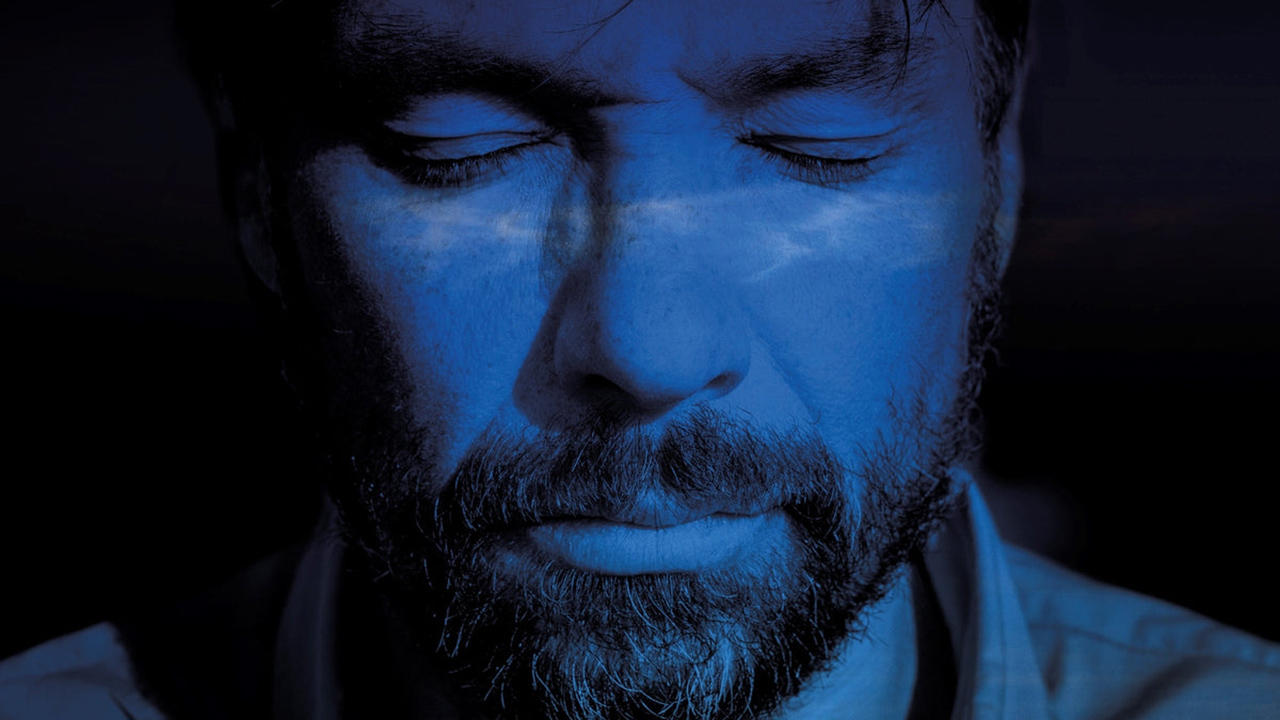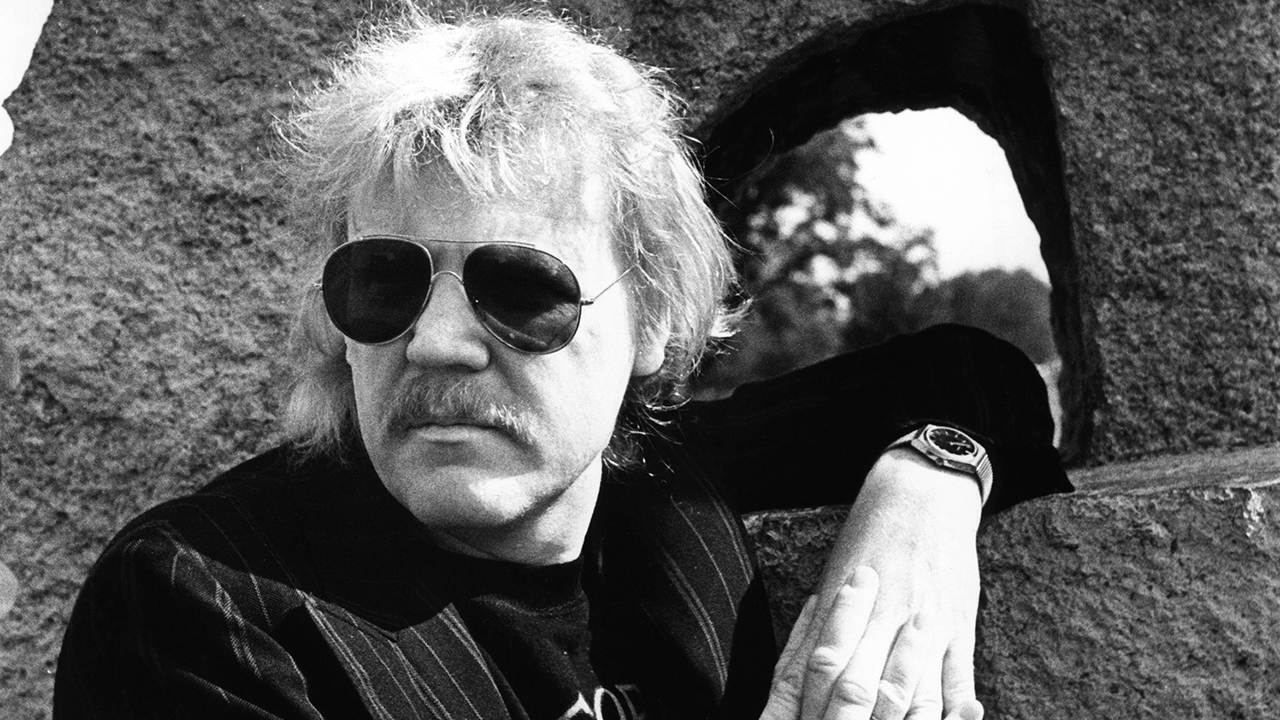“It’s not until I’ve finished a record that I think, ‘Oh my God, I have to go out onstage in front of all these relative strangers, singing my heart out about all these personal, private things”: Bruce Soord’s struggle to deliver Luminescence
Pineapple Thief leader’s third solo album was 18 months in the making - then his son told him something that meant he had to go round again

“Finding the right words was really difficult,” says Bruce Soord. The Pineapple Thief bandleader’s third solo album, Luminescence, finds him in an introspective, reflective mood. It’s an LP to slowly savour and absorb, qualities that may reflect its lengthy gestation – the music was written and recorded across a period from January 2021 to June 2023.
“It’s one of those things where I would dip in,” he says. “I’d work on it for a month or so and then be distracted with touring, Pineapple Thief, things like that.” And songwriting isn’t a tap to be turned on and off at will.
“Sometimes it happens, sometimes it doesn’t,” he says. “I spent months chasing my tail. I was writing loads of songs but none of it seemed to be very coherent. Even though I had all these ideas, it didn’t really come together until the beginning of this year. I gave myself a kick up the ass, went for a long walk, came back and realised what I had to do to finish the record.”
During the lockdowns, Soord performed solo livestreams with just an acoustic guitar and a looper pedal, an experience that helped him clarify his sound and identity as a solo artist outside The Pineapple Thief. The acoustic guitar is central to the sound of Luminescence, providing the backdrop for Soord’s musings and meditations on life, love and the tribulations of the modern world.
Even as the music was flowing, finding the right lyrics to express his thoughts remained a daunting part of the creative process. “It just takes me ages; you can’t sing any old crap, as much as I wish I could,” he says. “It was formulating how I was going to get what I was feeling out lyrically; that’s what took the time.”
The album’s first single, Dear Life, concerns “analysing the meaning of life, what the hell it’s all about and trying to find some purpose – especially as I’m getting older,” says Soord. But he doesn’t want to turn all his attention inwards, even if it proves a wellspring of inspiration for creativity.
“I’m in my studio now and I could spend all day consumed by this concept of thinking about the past, mistakes, finding peace, all that kind of stuff, and it would be exhausting,” he says. “I’d be like, ‘This is not how I want to live.’
Sign up below to get the latest from Prog, plus exclusive special offers, direct to your inbox!
“You can’t think like this all day long; it’s just ridiculous. By the end of the day, my brain is going to explode. I’d go back in the house and try to forget about it all. So it was a bit weird, but I can’t help finding inspiration in that world.”
It wasn’t all gazing inwards: sometimes inspiration emerged from specific locations. “There’s a track called Olomouc, which is a town in the Czech Republic. I wrote that in the town on tour with The Pineapple Thief,” he says. “We had a day off. I had my guitar in the hotel room, staring out the window, and wrote most of the music with the odd snippet of words here and there.”
Like sitting alone, gazing out a window far from home, Luminescence is distinctly melancholic. One underlying thought informing the album was the notion of looking back over life from your deathbed. However, Soord doesn’t want this to be a gloomy experience for the listener, hoping that there’s a positive message in this idea of considering what’s truly important – a thought that felt pertinent during the pandemic.
“I was reading how all of a sudden the spectre of death was suddenly much more vivid for a lot of people,” says Soord. “How are you going to feel when you look back on your life? Are you going to have your priorities straight? If you think about that in your everyday life, it can really help you get a sense of perspective.”
It’s about resisting the impulse that’s so much a part of contemporary society to rush through life, without ever pausing for breath. “Before you know it, everything has passed you by, and then you think, ‘Shit, what was really important?’”
The answer is the people that we care about and who care about us. “Really obvious stuff,” says Soord, “but it’s difficult to remind yourself that that is the important thing. The flipside of that, of course, is it’s not that simple. We take part in the rush and the chaos of life because we all need homes and money.”
Working away in his own studio space can be a solitary experience. Soord relies on his family for feedback which, in this instance, led him to add another layer to the arrangements. “I’d actually finished the record and I was quite pleased with it,” he says.
“I was aware that it was really quite stripped back, and I burned it on CD and put it in the car, because that’s where my wife first hears what I’m doing. I’ve got twin boys; they’re 16. My kids were in the car and one of them said, ‘Dad, I think it would really, really sound better with some strings.’ I was like, ‘What are you talking about? It’s finished!’
“I went to bed and I was tossing and turning: ‘Shit, he’s right, he’s bloody right. One, it’s finished, so mentally I’m gone; two, strings are expensive and when am I going to do it?’ Then I thought, ‘Sod it. If you’re going to do strings, you’ve got to do them properly.’”
So it was off to RAK Studio 3 in north London to work with string arranger Andrew Skeet, of chamber pop act The Divine Comedy and a veteran of film and television scores. “Ninety-five per cent of the advance from the label went on doing strings,” says Soord.
“I’m glad I did it – it really made a difference to the record. I’m very lucky that I was able to finance it. When I look back on my career, it’s times like that when I realise, ‘Oh God, yeah, I can go to RAK Studios,’ and there were some of the best players you could find playing over my music. It always makes me emotional; I do get a bit emotional in the control room watching them play.”
With Skeet’s sumptuous strings, Luminescence cuts a very different musical profile to the sound of an amplified prog rock band with The Pineapple Thief. The album’s acoustic arrangements provide an opportunity for Soord to put not just his lyrics but his singing firmly in the spotlight.
“One thing I’ve realised over the last five or six years is that my voice has become much more of a focus in my songwriting, whereas before I was a guitarist,” he says. “There are a lot of people like this: they’re a guitarist or songwriter and they sing out of necessity.
“That was my biggest failure – I didn’t take it seriously enough. The latter half of my career, my voice is a lot stronger. It’s nice to be able to strip it right back so the voice is much more of the key to the song.”
That focus on the voice and the lyrics brings with it a certain sense of vulnerability – there’s nowhere to hide in the music. “It’s always a real contradiction. Why do people like me do it, put yourself out there like that?” he says. “It’s not until I’ve finished a record that I think, ‘Oh my God, this is going to be released and people are going to hear this. I might have to go out onstage in front of all these relative strangers, singing my heart out about all these personal, private things I’ve been thinking about!’
“It doesn’t really make a lot of sense. I still can’t explain it. Maybe it’s cathartic. It’s almost the same as when you have a deep conversation with a friend to let things out; it’s the same thing. That’s how I feel when I’m writing these words and singing them.”
I had all these other songs lying around. I thought rather than just let them waste away on my hard drive, I’d finish them and put them on the second disc
The deluxe edition of Luminescence includes an entire second disc of new material titled Our Ship Sails At Dusk – something that was actually an unintended side-product of the creative process.
“When I’d finished the main disc, which was coherent and told a story, I had all these other songs lying around,” says Soord. “I thought rather than just let them waste away on my hard drive, I’d finish them and put them on the second disc. It’s almost like a double album in a way.”
He doesn’t rule out the possibility of the songs on Our Ship Sails At Dusk finding their way into a future live set or cropping up somewhere else. “My label, Kscope, have a tendency down the line to say, ‘Ah Bruce, you know that bonus disc? Everyone is asking if it could be reissued on vinyl...’ So they tend to have a way of creeping out of the woodwork in the future.”
When it comes to taking Luminescence out live, Soord confesses that he’s “absolutely quite terrified. When I wake up at four o’clock in the morning, as we all do, and the world is caving in on your head, I think, ‘Oh my God, I’ve got to go on tour!How am I going to do it? Will I be able to pull it off?’”
Soord – who did one show with solo material in January 2021 and had plans for more before everything shut down – finds encouragement in his fanbase. “I’ve got really nice followers; the people who come to my shows and who I interact with on social media. They’re really, really nice. I don’t get any toxicity, so it makes my job easy.
The people who come to my shows and who I interact with on social media are really, really nice. I don’t get any toxicity, so it makes my job easy
“When I did the livestreams during lockdown, I wasn’t particularly well prepared. I just said, ‘Look, I’m going to do this – come and watch if you want.’ Then I thought, ‘Shit, what am I going to do? I can’t remember how to play these songs!’
“It would all be a bit stop-start and I’d make loads of mistakes, but I think it’s how you deal with that kind of thing. And I got the impression that everyone was kind of enjoying the fact that it wasn’t super-slick. That’s part of the fun.”
After starting his writing career covering the unforgiving world of MMA, David moved into music journalism at Rhythm magazine, interviewing legends of the drum kit including Ginger Baker and Neil Peart. A regular contributor to Prog, he’s written for Metal Hammer, The Blues, Country Music Magazine and more. The author of Chasing Dragons: An Introduction To The Martial Arts Film, David shares his thoughts on kung fu movies in essays and videos for 88 Films, Arrow Films, and Eureka Entertainment. He firmly believes Steely Dan’s Reelin’ In The Years is the tuniest tune ever tuned.

